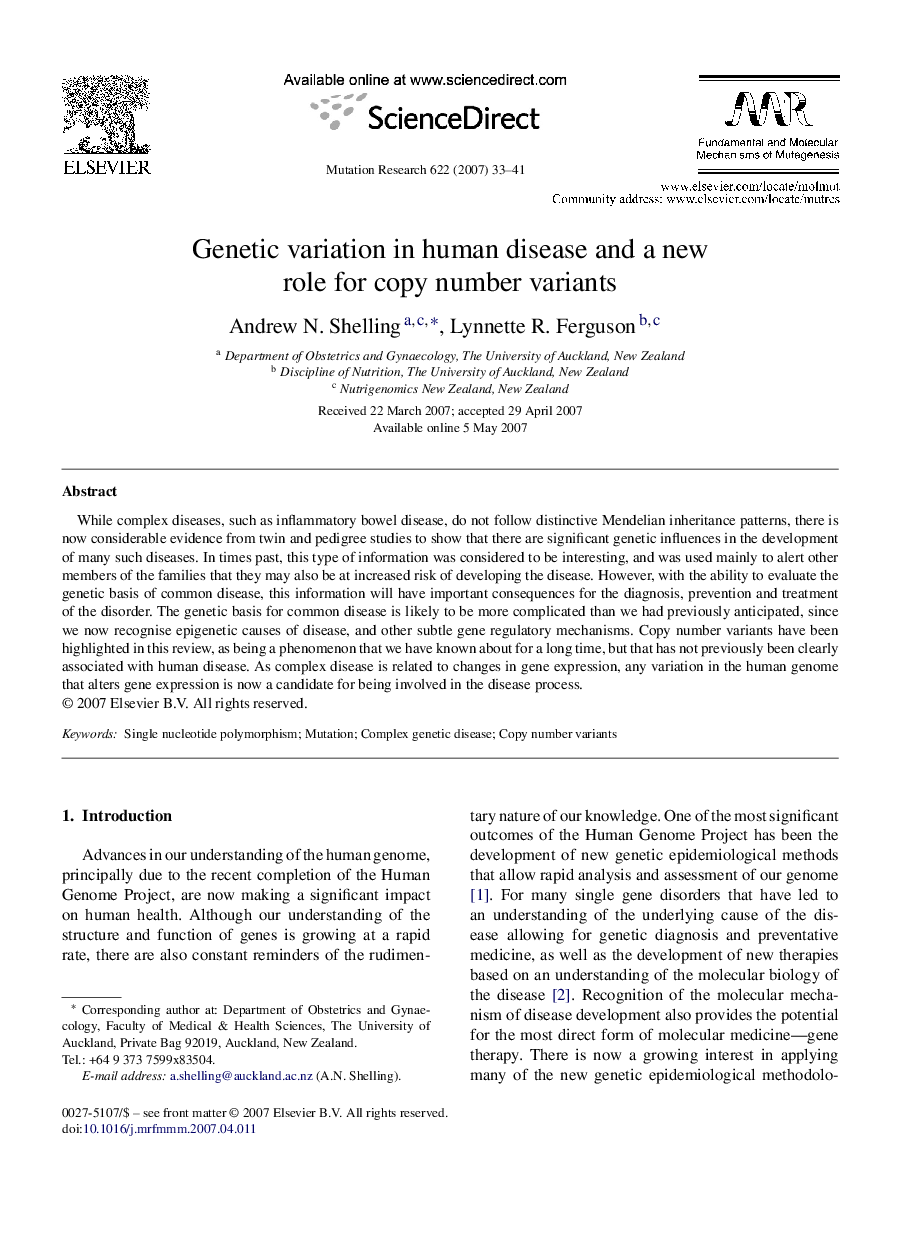| Article ID | Journal | Published Year | Pages | File Type |
|---|---|---|---|---|
| 2147339 | Mutation Research/Fundamental and Molecular Mechanisms of Mutagenesis | 2007 | 9 Pages |
While complex diseases, such as inflammatory bowel disease, do not follow distinctive Mendelian inheritance patterns, there is now considerable evidence from twin and pedigree studies to show that there are significant genetic influences in the development of many such diseases. In times past, this type of information was considered to be interesting, and was used mainly to alert other members of the families that they may also be at increased risk of developing the disease. However, with the ability to evaluate the genetic basis of common disease, this information will have important consequences for the diagnosis, prevention and treatment of the disorder. The genetic basis for common disease is likely to be more complicated than we had previously anticipated, since we now recognise epigenetic causes of disease, and other subtle gene regulatory mechanisms. Copy number variants have been highlighted in this review, as being a phenomenon that we have known about for a long time, but that has not previously been clearly associated with human disease. As complex disease is related to changes in gene expression, any variation in the human genome that alters gene expression is now a candidate for being involved in the disease process.
